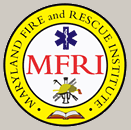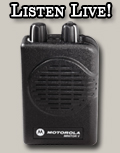|
FREDERICK WEATHER

| Web Counters |
Website Visitors
Since
January 18, 2007
|
Visitors Today
Jul 14, 2025
|
|
|
|
|
|
|
 Jul 14, 2025 - Aug 25, 2025
Jul 14, 2025 - Aug 25, 2025
|
|
Libertytown Volunteer Fire Dept. FOOD TRUCKS
|
|
|
 Jul 14, 2025 - Jul 19, 2025
Jul 14, 2025 - Jul 19, 2025
|
|
Urbana Volunteer Fire and Rescue 51st ANNUAL CARNIVAL
|
|
|
 Jul 16, 2025 - Dec 17, 2025
Jul 16, 2025 - Dec 17, 2025
|
|
Vigilant Hose Co WEDNESDAY BINGO
|
|
|
 Jul 17, 2025 - Dec 18, 2025
Jul 17, 2025 - Dec 18, 2025
|
|
Walkersville Volunteer Fire & Rescue Co. THURSDAY NIGHT BINGO
|
|
|
 Jul 18, 2025 - Dec 19, 2025
Jul 18, 2025 - Dec 19, 2025
|
|
Vigilant Hose Co FRIDAY BINGO
|
|
|
 Jul 18, 2025 - Dec 19, 2025
Jul 18, 2025 - Dec 19, 2025
|
|
Thurmont Community Ambulance WEEKLY FRIDAY NIGHT BINGO
|
|
|
 Jul 19, 2025 - Dec 31, 2025
Jul 19, 2025 - Dec 31, 2025
|
|
United Fire Company ONLINE RAFFLE STORE
|
|
|
 Jul 19, 2025 - Dec 31, 2025
Jul 19, 2025 - Dec 31, 2025
|
|
New Market District Volunteer Fire Co. ONLINE RAFFLE
|
|
|
 Jul 19, 2025 - Dec 31, 2025
Jul 19, 2025 - Dec 31, 2025
|
|
Thurmont Community Ambulance EVENTS
|
|
|
 Jul 19, 2025 - Oct 03, 2025
Jul 19, 2025 - Oct 03, 2025
|
|
Carroll Manor Fire Co. SOUP & SANDWICH SALE
|
|
|
 Jul 19, 2025 - Dec 31, 2025
Jul 19, 2025 - Dec 31, 2025
|
|
Carroll Manor Fire Co. ONLINE RAFFLE FUNDRAISING EVENT
|
|
|
 Jul 19, 2025 - Oct 05, 2025
Jul 19, 2025 - Oct 05, 2025
|
|
Walkersville Volunteer Rescue Co. CLUB 24 DRAWING & PICNIC
|
|
|
 Jul 20, 2025
Jul 20, 2025
|
|
Middletown Vol. Fire Dept. Aux. BACK TO SCHOOL BINGO
|
|
|
 Jul 26, 2025
Jul 26, 2025
|
|
Rocky Ridge Vol. Fire Co. DRIVE THRU CHICKEN BBQ
|
|
|
 Jul 27, 2025
Jul 27, 2025
|
|
Woodsboro Volunteer Fire Co. CHILDREN'S BINGO
|
|
|
 Aug 02, 2025
Aug 02, 2025
|
|
Thurmont Community Ambulance 2025 SUMMER GUN BASH
|
|
|
 Aug 23, 2025
Aug 23, 2025
|
|
Libertytown Volunteer Fire Dept. CAR & TRUCK SHOW
|
|
|
 Sep 13, 2025 - Dec 13, 2025
Sep 13, 2025 - Dec 13, 2025
|
|
Rocky Ridge Vol. Fire Co. MONTHLY BINGO (2nd Saturday of each month)
|
|
|
 Oct 18, 2025
Oct 18, 2025
|
|
Carroll Manor Fire Company SPORTSMAN'S BONANZA
|
|
|
| View All Events |
| |


